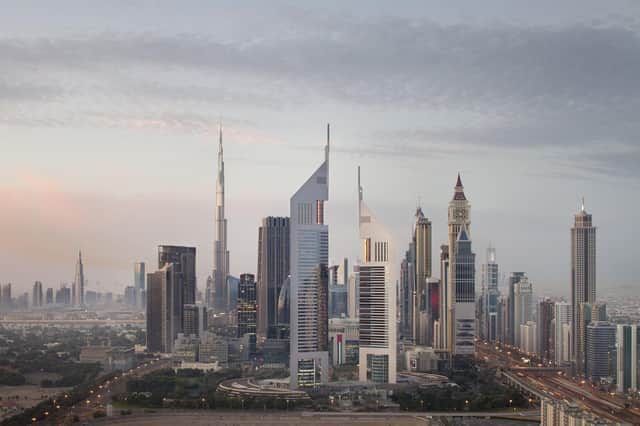Social media influencers are just modern-day marketing executives | Emma Kay


It is somewhat ironic that we preen over content creators one moment and pummel them in the next.
We put them on un-pardonable platforms. Dubai has been attractive to numerous British influencers as an opportunity to market and promote products in places that remain closed back home. They manufacture and procure an image of themselves for their livelihood.
Advertisement
Hide AdAdvertisement
Hide AdIt may seem outlandish and strange for some. But is this ‘crazy’ world of influencers and Instagram really all that different from what came before?
An influencer’s job is to project and advertise a version of themselves to inspire others to buy products. They are, to put it rather crudely, a brand in themselves. Their furloughless livelihoods depend on living a commercially sponsored life to sell things to us. They are no different from the adverts plastered on the television.
It is their job to ‘influence’ themselves to us through consumer brands. The same way Gary Lineker encourages us to chomp on Walkers crisps or Joan Collins in the 1980s, posing luxuriously in exotic settings, to influence us that drinking Cinzano vermouth will give us the same flamboyant lifestyle.
This could not be done in a corner of a soggy British garden. You cannot sell a brand or an idea without a stage to put it on. We do not condemn other kinds of jobs that require travel such as photographers, actors, models, etc. Being an influencer (marketing executive, if a more professional title is needed) is a career path. Companies realise this. It is a legitimate aspect of the marketing industry and a legitimate part of life.
Advertisement
Hide AdAdvertisement
Hide AdInfluencer Holly Smiths online vlog showed the unboxing of food ordered from the website of Halifax business Cut Price Barry’s, to help people save money. She went undercover rather than being paid and the authenticity made the savings more attractive. This led to 80m visitors trying to visit the site. The power of the social media influencer is more than a tiny online puddle, it can create waves. They are exceedingly powerful allies in the marketing world. Companies flourish on the rise of ‘content creators’ and in turn so does the economy.
With the younger generation veering away from mainstream television to view most of their entertainment online, it is not surprising that a massive amount of influencers have taken root in this preferred viewing habit.
It is a job, they provide a service and are paid for it. We may not consider it as being much of a job compared to ours or other professions, but it is their chosen path, like footballers earning millions to kick a ball about.
If video calls are getting your goat...
Businesses in lockdown have found ingenious ways to stay afloat.
Advertisement
Hide AdAdvertisement
Hide AdCronkshaw Farm is one of them, by offering their goats as video participants in Zoom calls.
Created as a joke, it has quickly proven that goats are popular participants for a menagerie of meetings including cheering up NHS staff and virtual church services.
At first glance it may seem baffling why anyone would feel the need to gaze at a goat but there are many perks and possibilities.
Virtual meeting blandness can evaporate with a friendly goat to cross the bridge of boredom. Or, replace yourself with a braying buddy at your next family board games night.
Advertisement
Hide AdAdvertisement
Hide AdWith lockdown we have been indebted with erroneous call errors and tireless meeting etiquette. A goat does not care about wearing the right attire or having the correct file in the correct place.
We shouldn’t underestimate the healing power animals have on us.
Government advert misses a golden opportunity
The government has pulled a ‘stay at home’ advert after receiving backlash for its depictions of women.
The imagery is clearly advocating an outdated heteronormative image of a 2021 home, showing only women doing housework. Its four drawings are of a family lounging on a sofa, a woman doing cleaning with a young girl, a mother home schooling her two children and a woman ironing with a baby in her arms. People have likened it to the archaic 1950s household.
Advertisement
Hide AdAdvertisement
Hide AdIt’s clear this kind of advert is not welcome. It bolsters the idea that women belong in a continuous childcare chore. The advert misses a golden opportunity to showcase many variant types of family who are all in it together with the ongoing crisis.
The stay at home to save lives message is for everyone and needs to portray that to all of us, whether your family is nuclear or not.
Comment Guidelines
National World encourages reader discussion on our stories. User feedback, insights and back-and-forth exchanges add a rich layer of context to reporting. Please review our Community Guidelines before commenting.